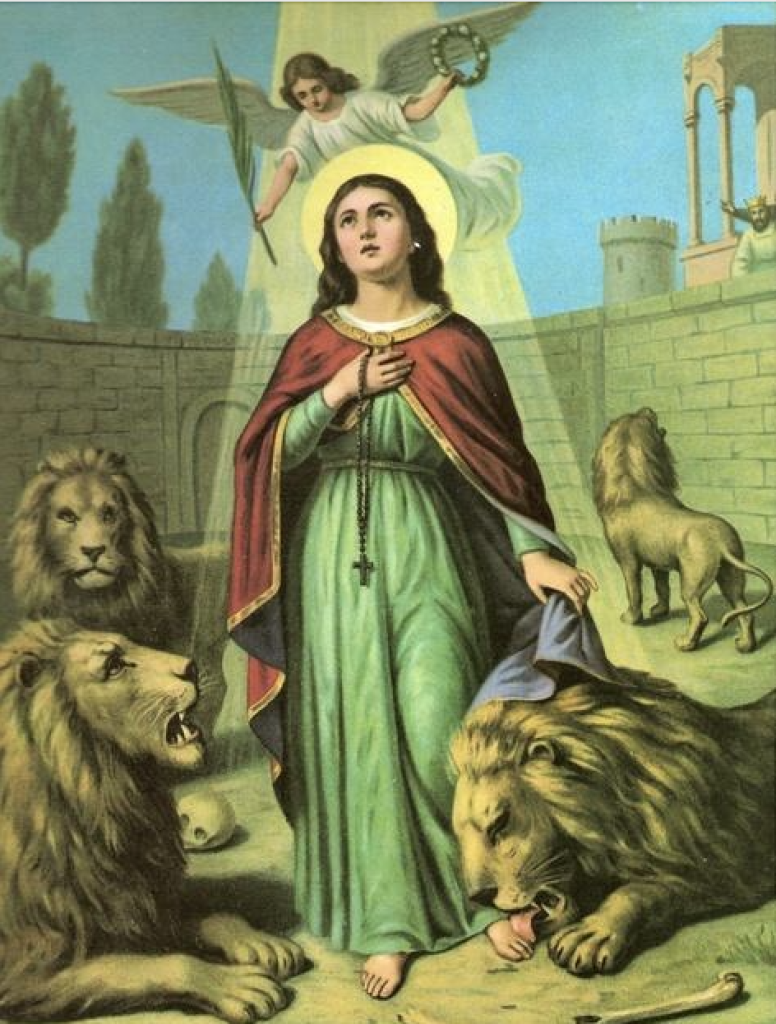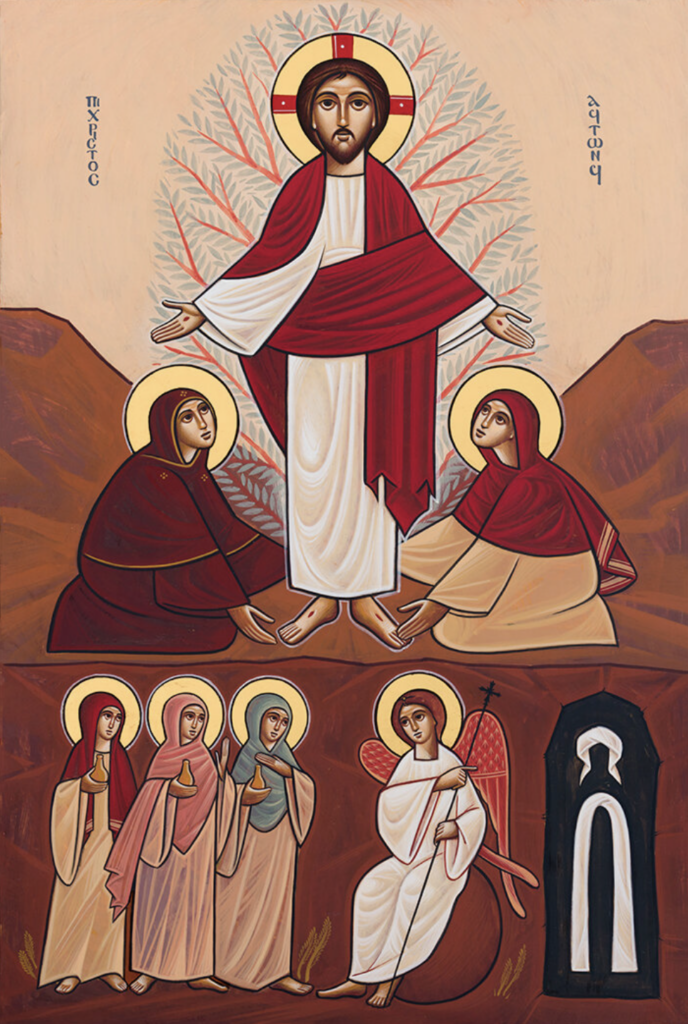
St. Thecla
s
The role of women is clear in the New Testament. Following in the footsteps of the Mother of God, many females responded to the call of service and virginity. For example, St. Phoebe was a deaconess who helped St. Paul (Rom 16:1-2). Mary Magdalene was consecrated as a deaconess by the apostles. She led many women to believe in the Lord Jesus Christ. The Coptic Church commemorates her on the 28th of Epep, which is August 4th. St. Thecla (left) was a deaconess and disciple of St. Paul. He assigned her to serve in her original homeland. She spent all her life in service and faced many tribulations and persecution, but the Lord saved her every time. The Coptic Church commemorates her on the 23rd of Thoout, which is October 3rd or 4th.
The service of consecrated deaconesses in church was abolished in the 13th century. Due to the urgent need for the service of women in church, His Holiness Pope Shenouda III decided to revive this rite on the Feast of Pentecost in 1981, by consecrating a large number of deaconesses to serve in churches in Cairo. Even earlier than that, during the time of His Holiness Pope Kyrillos VI, His Grace Bishop Athanasius had begun consecrating females as “serving nuns.” Today many bishops have consecrated sisters for the service within their dioceses.
According to God’s calling for her, and under the guidance of her spiritual father the Bishop, a Consecrated Sister serves in various ways:
- Serving children, girls, and women
- Serving in a church childcare center as well as serving orphans
- Serving in various church social services
- Serving in nursing homes and looking after the needs of the elderly
- Visiting sick women and giving them a word of comfort, as well as speaking the word of God. She represents the church in caring for them and tells the priest about cases in need of Communion or visitation
- Serving handicapped females to help them live a healthy life both spiritually as well as psychologically
- Supervising women’s activities in church and administrative departments at the church or bishopric centers
- Supervising youth (female) homes, where girls are in desperate need of accommodation and care
- Helping the priest during the Baptism of adult women and organizing the seating of women in church and those coming for Holy Communion
- Counseling services
- Sewing services

